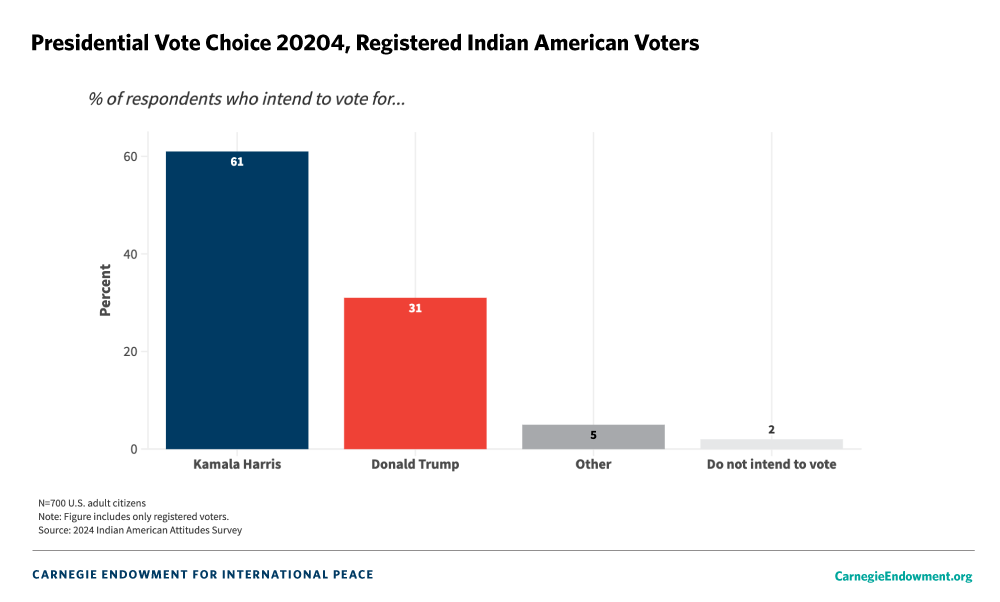Carnegie Endowment for International Peace | Carnegie Endowment for International Peace (original) (raw)
We deliver unbiased research to decisionmakers who help set the global policy agenda
Our scholars generate strategic ideas and independent analysis to help inform countries, institutions, and leaders as they take on the most difficult global problems.




We generate actionable policy ideas to help forge a safer world
Our scholars from around the world provide decisionmakers with pragmatic recommendations to support viable long-term solutions to global challenges.
Chart of the week
We use data to guide our understanding of complex issues
Carnegie leverages data to understand the threats and opportunities affecting global security and well-being.
Explore Sumitra Badrinathan, Devesh Kapur, and Milan Vaishnav’s use of data in their latest paper, “Indian Americans at the Ballot Box: Results From the 2024 Indian American Attitudes Survey.”

We focus on cross-cutting policy issues and key regions
Carnegie scholars provide topical analysis on democracy, technology, climate, and other issues within the regional context in Asia, Africa, Europe, East and South Asia, the Middle East, Russia and Eurasia, the United States, and Latin America.
We host events worldwide to unpack the most difficult global challenges
Carnegie’s regular series of global public events, both virtual and in person, bring together top experts to discuss and debate pressing threats to global security and provide solutions.
Carnegie Explainer Videos
Discover what’s driving today’s hottest global issues with Carnegie Explainers.
With expert insights and rich visuals, our scholars bring clarity to complex foreign policy issues, providing a deeper understanding of critical geopolitical challenges.
Is AI the Future of National Security?
Through a simulation of a Chinese blockade on Taiwan, Carnegie scholars examine AI's potential impact on national security crises. How would AI impact the speed, perception, and groupthink of bureaucratic decisionmakers? Learn more in Christopher S. Chivvis and Jennifer Kavanagh's full article.
Hypersonic Missiles Arms Race: What You Need to Know
Hypersonic missiles can travel faster than five times the speed of sound. Russia and China have invested heavily in different types of hypersonic missiles capable of carrying both nuclear and conventional warheads. The United States has also invested in its hypersonic missile technology. What are hypersonic weapons capable of, and what dangers do they pose to international stability? Is another arms race under way?
Carnegie Explainer Videos
Discover what’s driving today’s hottest global issues with Carnegie Explainers.
With expert insights and rich visuals, our scholars bring clarity to complex foreign policy issues, providing a deeper understanding of critical geopolitical challenges.
Is AI the Future of National Security?
Through a simulation of a Chinese blockade on Taiwan, Carnegie scholars examine AI's potential impact on national security crises. How would AI impact the speed, perception, and groupthink of bureaucratic decisionmakers? Learn more in Christopher S. Chivvis and Jennifer Kavanagh's full article.
Hypersonic Missiles Arms Race: What You Need to Know
Hypersonic missiles can travel faster than five times the speed of sound. Russia and China have invested heavily in different types of hypersonic missiles capable of carrying both nuclear and conventional warheads. The United States has also invested in its hypersonic missile technology. What are hypersonic weapons capable of, and what dangers do they pose to international stability? Is another arms race under way?


